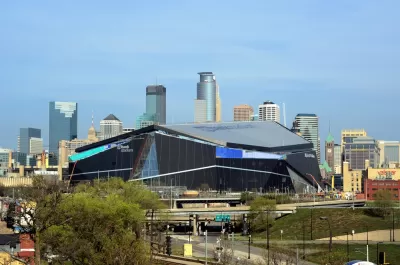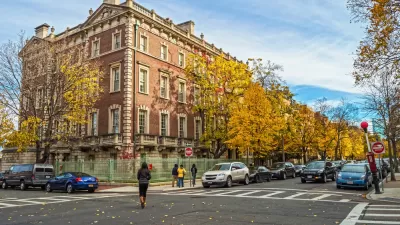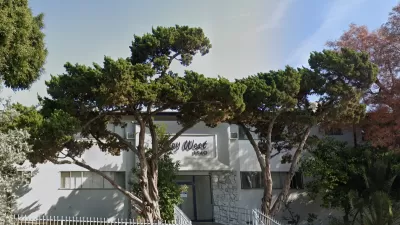The Twin Cities have a super-sized incentive to nail down regulations for short-term rentals. A tax revenue windfall hangs in the balance.

"With February’s Super Bowl at U.S. Bank Stadium, [Minneapolis and St. Paul] are actively discussing ordinances aimed at regulating this industry — not to mention collecting a little revenue," reports Greta Kaul.
Kaul notes that Airbnb already has a sizable portfolio in the Twin Cities, though none of the rentals are technically legal.
The article serves in part as a primer on the nascent field of short-term rental regulations practices before transitioning to a discussion of the specific of each city's proposed regulations. St. Paul's initial proposal, writes Kaul, "would limit short-term rentals to half of the units in a multidwelling building, up to four total; would disallow commercial or social events, require hosts to pay a $70 fee to be licensed and require them to pay lodging and sales tax (typically, St. Paul’s lodging tax is 3 percent [pdf], in addition to sales taxes and transit taxes, for establishments with less than 50 rooms), property insurance, and require non-owner-occupied units to have fire inspections, plus require platforms to pay $7,000 to operate in the city (St. Paul imposes a $30,000 licensing fee on ride network platforms like Lyft and Uber), among other provisions."
Meanwhile in Minneapolis a draft ordinance appearing before the Community Development and Regulatory Services Committee of the City Council this week "would require operators of short-term rentals to be licensed."
FULL STORY: With Super Bowl windfall in sight, Minneapolis and St. Paul look to regulate short-term rentals

Maui's Vacation Rental Debate Turns Ugly
Verbal attacks, misinformation campaigns and fistfights plague a high-stakes debate to convert thousands of vacation rentals into long-term housing.

Planetizen Federal Action Tracker
A weekly monitor of how Trump’s orders and actions are impacting planners and planning in America.

San Francisco Suspends Traffic Calming Amidst Record Deaths
Citing “a challenging fiscal landscape,” the city will cease the program on the heels of 42 traffic deaths, including 24 pedestrians.

Defunct Pittsburgh Power Plant to Become Residential Tower
A decommissioned steam heat plant will be redeveloped into almost 100 affordable housing units.

Trump Prompts Restructuring of Transportation Research Board in “Unprecedented Overreach”
The TRB has eliminated more than half of its committees including those focused on climate, equity, and cities.

Amtrak Rolls Out New Orleans to Alabama “Mardi Gras” Train
The new service will operate morning and evening departures between Mobile and New Orleans.
Urban Design for Planners 1: Software Tools
This six-course series explores essential urban design concepts using open source software and equips planners with the tools they need to participate fully in the urban design process.
Planning for Universal Design
Learn the tools for implementing Universal Design in planning regulations.
Heyer Gruel & Associates PA
JM Goldson LLC
Custer County Colorado
City of Camden Redevelopment Agency
City of Astoria
Transportation Research & Education Center (TREC) at Portland State University
Jefferson Parish Government
Camden Redevelopment Agency
City of Claremont





























